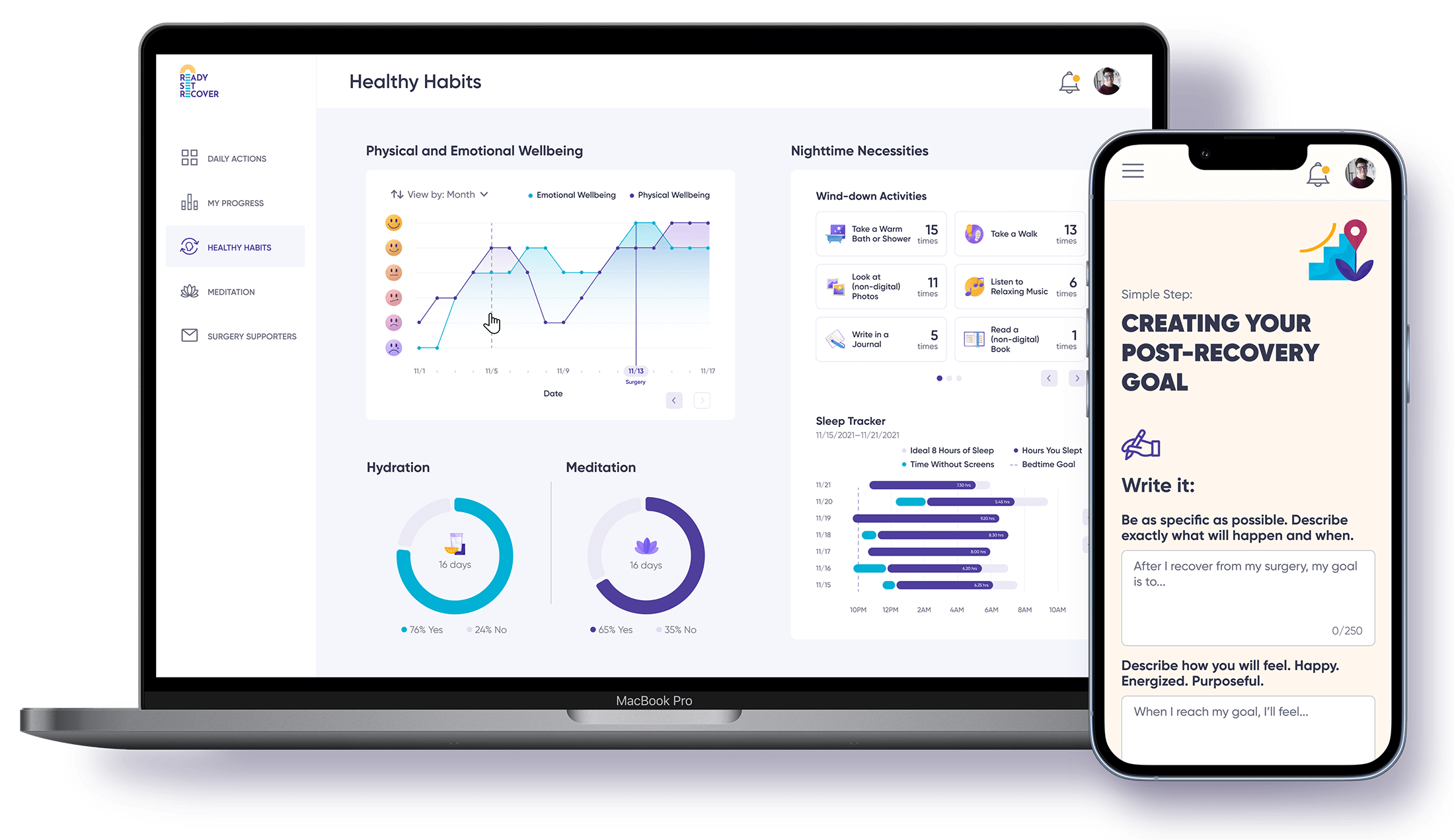How to Prepare for Surgery and Recover Faster


Worried about your upcoming surgery? Learn how to prepare for surgery with step-by-step checklists and recovery tips to ensure everything goes smoothly.
Key Takeaways
Proper preparation for surgery involves detailed planning, including organizing travel, packing essentials, following dietary guidelines, managing medications, and maintaining hygiene.
Pre-operative assessments, including health history reviews, blood and urine tests, and imaging, ensure your body’s readiness and identify potential complications early.
Post-surgery recovery planning involves arranging for help, stocking up on supplies, attending follow-up appointments, and adhering to your surgeon’s instructions to ensure smooth healing and avoid complications.
Prepare for Surgery: Basics You Need to Know
Getting ready for surgery isn’t just about showing up on the scheduled day—it’s about preparing your body and mind to ensure the best possible outcome. The right preparation can reduce risks, speed up recovery, and help you feel more in control.
For mental and emotional readiness, check out these ways to stay positive while preparing for surgery.
If you're specifically preparing for a gallbladder surgery, we’ve also created a dedicated guide to help you navigate that procedure. We've provided a checklist below to help you prepare for surgery.
Notify your surgeon immediately if you develop any illness, such as a cold or fever, before your procedure.
Avoid activities that might damage the skin around the surgical area.
Begin your preparations as soon as you have a surgery date.
Consider ways to prepare if there are a few months before your surgery date.
Follow top tips for effective preparation.
You should also consult your General Practitioner (GP) about medication consumption and make certain you have an adequate supply of prescriptions before surgery. Here are some key areas to focus on in your preparation:
Make Travel Arrangements
Planning your travel arrangements ahead of time ensures efficient management of all transportation details. Notify a responsible adult to accompany you for your surgery to assist with any needs and ensure your safety. Whether it’s a short trip or staying overnight, having someone to support you can make a significant difference.
Pack Essentials
Bringing the correct essentials for your hospital stay can improve your comfort and convenience. Here are some items to consider:
Pajamas
Underwear
Change of clothes for discharge
Slip-on walking shoes or nonskid slippers to ensure safety while moving around the hospital
Hand towel
Toiletries
Cash
Medications
Necessary items like glasses or contact lenses
For pediatric patients, a favorite stuffed animal or blanket can be comforting.
Think About Your Diet

Maintaining proper hydration is essential for optimal bodily functions, including circulation and tissue repair. Focus on eating healthy leading up to your procedure to keep your body in the best possible condition. Adhering to your doctor’s specific dietary instructions is really important. Stop eating or drinking as instructed to avoid complications during surgery.
Manage Your Medications
Proper medication management contributes to a seamless surgical experience. Here are some steps to follow:
Bring a list of all your medications in their original bottles to the hospital.
Review this list with your care team during the preoperative exam.
Make sure to include all medications and supplements you are currently taking.
If you’re on insulin or tablets for diabetes, discuss these with your care team.
Observe Proper Hygiene
Maintaining good hygiene is key to preventing infections. Shower the night before and the morning of the operation with any special medicated soap provided by your surgeon. Washing hands thoroughly before touching your incision will help avoid unwanted bacteria. Remove all jewelry and body piercings before arriving at the hospital.
Care for Your Skin
Taking good care of the skin around the surgical site is important to lower the risk of infection. Avoid shaving near the surgical site with a razor for three days before surgery.
Preventing cuts, grazes, or insect bites in the surgical area is crucial to avoid infections and potential cancellation of the operation.
Prepare Your Mind

Preparing yourself mentally can greatly lessen anxiety and enhance outcomes. Attend pre-surgery educational seminars to gain valuable information about the procedure and what to expect. A nurse or care team member will call a few days before your operation to provide specific pre surgery directions, offering a opportunity to ask any last-minute questions and address concerns.
Being mentally prepared and physically active helps in taking care of your emotional well-being.
Prepare Your Home
Getting your home ready for post-surgery recovery is highly recommended because creating a safe and comfortable environment will help you recover more efficiently.. Thoroughly clean your home to provide a safe environment. Remove any hazards that could impede your movement, such as clutter or loose rugs.
Health Assessments
Assessments and tests to identify any underlying conditions prior to the procedure are necessary to confirm your body’s readiness. This process often includes a review of your medical history, physical examination, and specific tests to evaluate fitness for surgery.
Routine lab tests, conducted by a medical team, help find potential problems that might complicate surgery if not identified and treated early.
Pre-Operative Assessment
The pre-operative assessment is a comprehensive process that includes:
A review of your health history, covering previous surgeries, medical conditions, and medications
Measurement of your vital signs such as blood pressure, heart rate, and respiratory rate
Checking for allergies, especially to medications or anesthesia, to prevent complications during surgery
Blood and Urine Tests
Tests are essential to detect infections or problems before surgery. Some common tests include:
Complete blood count (CBC), which checks for anemia and infection
Liver function tests
Kidney function tests including urine tests, which can help detect infections or kidney problems
Electrolyte panel, which measures the levels of essential minerals and salts in your blood, ensuring your body maintains proper balance during and after surgery
Coagulation tests, such as PT (Prothrombin Time) and aPTT (Activated Partial Thromboplastin Time), which determine how well your blood clots and help identify any bleeding disorders that could complicate surgery
Blood glucose tests for diabetic patients, which help manage blood sugar levels and prevent complications related to high or low glucose levels during the procedure
X-Rays and Imaging

X-rays and other imaging tests like MRIs or CT scans provide detailed insights into the area of operation, aiding in the preparation for surgery. These imaging methods offer a clear picture of the internal structures, which helps surgeons plan the procedure effectively. They can identify any abnormalities that might complicate the surgery or require special techniques.
Anesthesia and Pain Management
Meeting Your Anesthesiologist
Meeting with your anesthesiologist before surgery ensures that your anesthetic plan is safe and effective. During the preoperative assessment, the anesthesiologist will:
Review your medical history
Discuss any family history of anesthesia problems
Address any concerns or questions you have about the anesthetic procedure.
Understanding Types of Anesthesia
General Anesthesia
General anesthesia involves rendering the patient unconscious during surgery, ensuring that you do not feel pain or move during the procedure. It can be administered either through an injection into the veins or as a gas via a mask.
Potential risks include allergic reactions, respiratory complications, and cardiovascular issues, such as high blood pressure.
Regional Anesthesia
Regional anesthesia numbs a larger area of the body, such as an arm or leg, by injecting anesthetic near a cluster of nerves. This type of anesthesia allows you to remain awake, but you will not feel any discomfort in the targeted region. Common forms of regional anesthesia include spinal and epidural anesthesia.
Potential risks include nerve damage, infection, and a drop in blood pressure.
Local Anesthesia
Local anesthesia is used to numb a small, specific area of the body, typically for minor procedures. The anesthetic is injected directly into the tissue, and you remain fully awake and alert during the procedure.
Potential risks include allergic reactions, prolonged numbness, and localized infection.
Understanding Pain Management
Effective pain management post-surgery may include both medications and non-drug methods such as physical therapy and relaxation techniques. Patient-controlled analgesia (PCA) allows patients to self-administer a set dose of pain medication post-surgery.
Epidural analgesia can be used for continuous pain relief, especially after major surgeries.
Lifestyle Adjustments Before Surgery
Get Exercise

Regular exercise can lower the risk of post-surgery complications and speed up recovery. Participating in ‘prehab’ programs that include high-intensity interval training can reduce complications. Even starting a fitness plan 2-3 weeks before surgery can result in better outcomes.
Don't Smoke
Reducing or quitting smoking in the weeks leading up to surgery optimizes recovery and lowers the risk of delayed healing and increased infections. Nicotine restricts blood flow, reducing oxygen and nutrient supply to healing tissues.
Eat Right
Maintaining a well-balanced diet rich in vitamins, proteins, and minerals supports wound healing. Focus on eating fruits, vegetables, whole grains, and lean proteins to keep your body in the best possible condition. To achieve this, it’s essential to eat healthy foods consistently.
Practical Tips for Surgery Day
Adhere to the guidelines for arrival time, final preparations, and hospital protocols on the day of surgery to ensure a seamless process for you and the surgical team.
Arrive on Time
Arrive at the hospital at least one hour before your surgery start time and bring necessary items like your insurance card, identification, and medications in their original bottles. You may need to arrive up to 2 hours before your scheduled time.
Make Final Preparations
Follow pre-operative fasting guidelines to minimize risks during anesthesia. Typically, you should stop eating or drinking after midnight before your surgery. Also, avoid drinking alcoholic beverages or smoking for 24 hours prior.
Follow Hospital Protocols
Wear loose fitting clothes, ensuring comfort, and flat shoes. Remove all jewelry, makeup, and body piercings before arriving at the hospital. Don't wear contact lenses; if you wear glasses, bring a case for them.
Post-Surgery Recovery Planning
Organising for post-surgery recovery is key to ensuring proper healing and avoiding complications. Follow your surgeon’s post-operative instructions carefully, and call your doctor if you have concerns such as fever or increased pain.
Arrange for Help
Seek assistance from family, friends, or professional caregivers during and after surgery. Arrange for someone to help with cooking, laundry, and pet care, and consider hiring a professional caregiver if needed.
Stock Up

Ensure your home is stocked with necessary supplies and healthy foods before surgery. Having a variety of healthy snacks available can make your recovery period much smoother. This preparation will help you avoid unnecessary trips to the store and ensure you have everything you need within easy reach.
Make Follow-Up Appointments
Attending all scheduled follow-up appointments is critical for monitoring your progress and addressing any concerns. Prepare questions in advance to discuss with your surgeon during these visits to ensure a better recovery.
Your Next Steps: Stay Strong and Prepare for Surgery Success
Preparing for surgery involves a series of well-planned steps that can significantly improve your overall experience and recovery. From understanding pre-operative assessments and managing medications to following dietary guidelines and making lifestyle adjustments, each aspect plays a crucial role. Ensuring you have the right support system, adhering to hospital protocols on the day of surgery, and planning for post-surgery recovery are equally important. By following these guidelines, you can navigate your surgical journey with confidence and focus on a smooth, speedy recovery.
Frequently Asked Questions
What should I do if I have a cold or fever before my surgery?
You should notify your surgeon immediately if you develop any illness, such as a cold or fever, before your procedure. It's important to ensure your safety and the success of the surgery.
What items should I pack for my hospital stay?
You should pack nightwear, day clothes, underwear, slip-on walking shoes or non-skid slippers, toiletries, cash, medications, and necessary items like glasses or contacts. Don't forget a dressing gown for comfort.
Why are pre-operative assessments important?
Pre-operative assessments are important because they review your health history, vital signs, and allergies to ensure you are fit for surgery and to prevent complications during the procedure.
How can I manage pain after surgery?
To manage pain after surgery, you can use medications such as opioids, local anesthetics, NSAIDs, physical therapy, and relaxation techniques. Work with your healthcare provider to find the best approach for your situation.
What lifestyle changes should I make before surgery?
Before surgery, it's important to start engaging in regular physical activity, quit smoking, and eat properly to support wound healing and improve surgical outcomes.
How can I boost my immune system before surgery?
Eat nutrient-rich foods, take vitamin C and zinc (if approved by your doctor), get enough sleep, stay hydrated, and manage stress.






